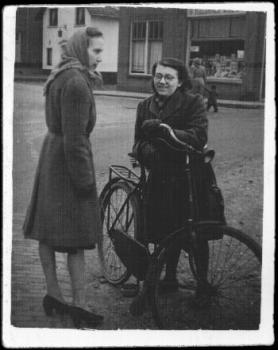Pierre Loti (1850-1923)
Yann Gaos and Sylvestre Moan are cousins aboard the fishing boat Marie, engaged in the pursuit of a school of cod somewhere near the south end of Iceland. We visit them and three of their co-workers sealed up in the hold of the vessel, the fire warming them and bottles of wine making their rounds. They are on a short respite from their normal occupations, which are described as line fishing: numerous hooks on a single line per man. The fish are detached one after another, filleted, and salted before being stacked in barrels.
A major storm arrives, and the boat is driven before the wind, toward Norway. The ship weathers the storm, limits out its catch, and starts on the return journey to Brittany. Once there, celebrations and parties are the rule; at one, Yann meets Gaud, a local upper-class girl. They fall in love, but due to class traditions, they cannot associate with each other. The winter passes, Yann stays away from Gaud, and soon another fishing season begins at the end of March.
Sylvestre has been drafted into the army and shipped to the orient. He writes home to his beloved Grandmother about his experiences for several months, but the letters cease and it is subsequently revealed that he has fallen from the bullet of an Asian rebel. Meanwhile, Gaud’s father has died and she discovers that he lost all his money gambling, so she moves in with Grandmother and supports them by her sewing expertise. Yann, sailing on the Marie near Iceland, has a epiphanic episode while staring at the infinite horizon, and recognizes that he is married to the sea.
Several years pass. Gaud, deeply in love with Yann, suffers because of his neglect of her, but consoles herself with her duties as a seamstress. Yann takes to drink and chasing girls, trying to evade his feelings for Gaud, and doing his best to forget his love for her.
One day, returning from the market, Yvonne the Grandmother is attacked by several boys who are tormenting a cat. She is rescued by Yann, just happening to pass by, and escorted home where he sees Gaud. She proposes to him and he accepts. They are married and discover their renewed love for each other. Soon fishing season approaches and Yann must leave on a newly constructed ship (the Marie was wrecked in a storm). Gaud watches from a cliff as the fleet disappears in the west, wondering if her beloved will return. As does the reader (spoiler alert).
The fishermen begin arriving at the end of August, the boats appearing on the horizon one at a time. Gaud waits and waits… Finally they’ve all gotten back, all except the one Yann was on. And it never returns.
Loti’s reputation was based principally on his descriptive powers: his imaginative and evocative impressions of the ocean in its various moods is remarkable and unprecedented in my experience, anyway. The last scenes from the movie, “The Perfect Storm” kept coming to mind, with the primitive fishing vessel struggling to climb one of those 100′ high rollers. In some ways, this is an out-of-date book, featuring emotional description as well as physical portrayals. It seemed quite poetical, overall. It was one of those novels that somehow are enjoyed more in remembrance than in actual perusal. I can’t say i disliked it, but in spite of it’s powerful poetical impact, it was not one of the best books i’ve read. It’s not very long, though, so might be worth a bit of investigation.
The painting is of Loti, by Henri Rousseau, one of the post-impressionists. You might recall his jungle pictures of tigers and lions devouring other animals and one unfortunate native.






